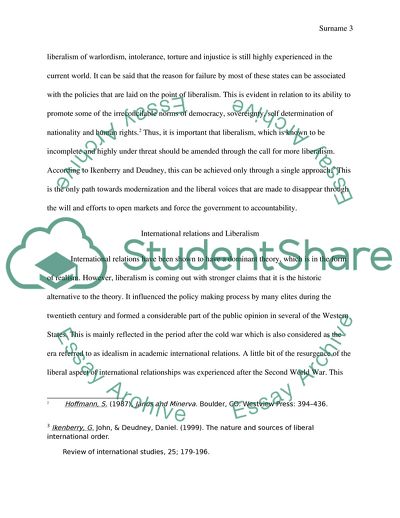Cite this document
(The Historical Evolution Within the Liberal Internationalism Essay Example | Topics and Well Written Essays - 2250 words - 1, n.d.)
The Historical Evolution Within the Liberal Internationalism Essay Example | Topics and Well Written Essays - 2250 words - 1. https://studentshare.org/politics/1816093-politics
The Historical Evolution Within the Liberal Internationalism Essay Example | Topics and Well Written Essays - 2250 words - 1. https://studentshare.org/politics/1816093-politics
(The Historical Evolution Within the Liberal Internationalism Essay Example | Topics and Well Written Essays - 2250 Words - 1)
The Historical Evolution Within the Liberal Internationalism Essay Example | Topics and Well Written Essays - 2250 Words - 1. https://studentshare.org/politics/1816093-politics.
The Historical Evolution Within the Liberal Internationalism Essay Example | Topics and Well Written Essays - 2250 Words - 1. https://studentshare.org/politics/1816093-politics.
“The Historical Evolution Within the Liberal Internationalism Essay Example | Topics and Well Written Essays - 2250 Words - 1”. https://studentshare.org/politics/1816093-politics.


